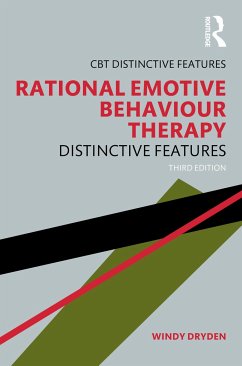
Motivational Cognitive Behavioural Therapy
Distinctive Features
Versandkostenfrei!
Versandfertig in 2-4 Wochen
193,99 €
inkl. MwSt.
Weitere Ausgaben:

PAYBACK Punkte
97 °P sammeln!
This informative and straightforward book explores the emergence of Motivational Interviewing and Cognitive Behavioural Therapy, with specific attention given to the increasing focus on the central importance of the therapeutic alliance in improving client outcomes.













